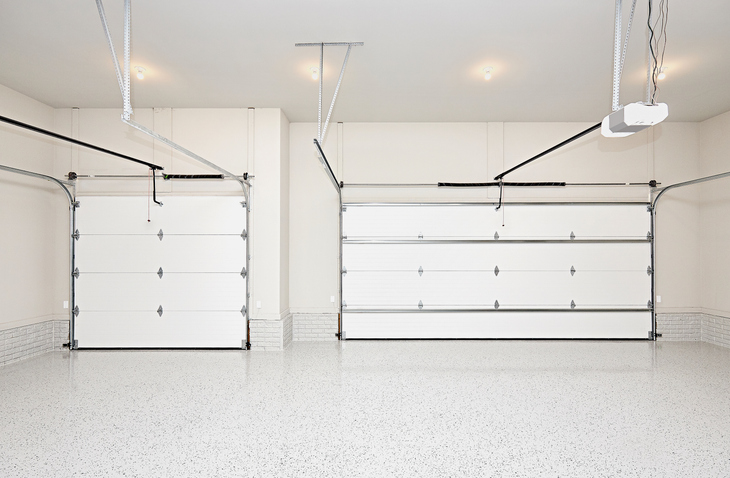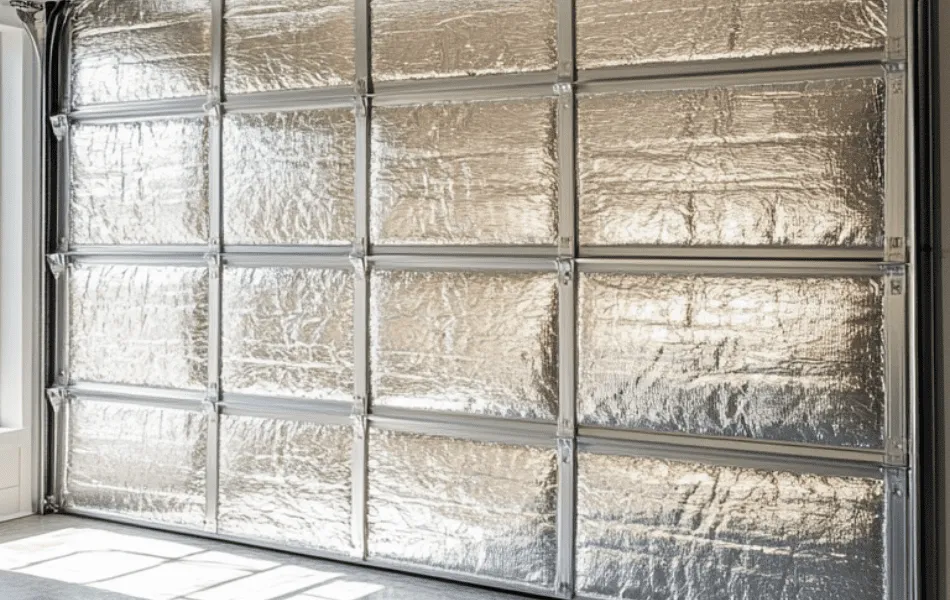When it comes to improving the comfort and energy efficiency of your home, understanding the difference between garage insulation and garage door insulation is crucial. Many homeowners overlook their garage when considering ways to enhance their living space, yet this area can significantly impact overall home energy consumption. Let’s delve into the nuances of these two types of insulation and help you decide which is the best fit for your needs.

What is Garage Insulation?
Garage insulation refers to the process of insulating the walls, ceiling, and sometimes the floor of your garage. This type of insulation is similar to what you might find in the rest of your house, aiming to maintain a stable temperature within the garage and protect against outdoor elements.
Benefits of Garage Insulation
There are several benefits to insulating your garage. Firstly, it helps in maintaining a consistent temperature, making it more comfortable to use as a workspace or storage area. Additionally, it can reduce energy costs by acting as a buffer against extreme outdoor temperatures, therefore reducing the load on your homes heating and cooling systems. For more information on how insulated garage doors contribute to energy efficiency, check out this energy efficiency guide.
Understanding Garage Door Insulation
Garage door insulation focuses specifically on the door itself. Since garage doors are often the largest single opening in a home, they can be a significant source of energy loss. Insulating the garage door can help mitigate this issue.
Advantages of Insulating Your Garage Door
Insulating your garage door offers several advantages, such as improved temperature control within the garage, reduced noise from outside, and enhanced durability of the door. If you’re curious about how garage door insulation can impact your homes value, you might find this home value article insightful.
Comparing the Two: Which One Should You Choose?
Deciding between garage insulation and garage door insulation depends on your specific needs. For instance, if your garage is attached to your home and used frequently, investing in comprehensive garage insulation may be beneficial. On the other hand, if youre primarily concerned about temperature fluctuations and noise, insulating the garage door might suffice.
Cost Considerations
One of the factors to consider when choosing between the two is cost. Full garage insulation can be more expensive due to the larger area involved, whereas garage door insulation is often less costly but still effective. For a detailed comparison of insulated versus non-insulated doors, check out this external resource.
Installation and Maintenance
Both types of insulation require careful installation to be effective. Professional installation is recommended to ensure that there are no gaps or weak spots. Proper maintenance is also crucial to maintain the integrity of the insulation over time.
DIY vs Professional Installation
While DIY kits are available for both types of insulation, hiring a professional can guarantee a more comprehensive and effective installation. Professional installers have the expertise to assess your specific needs and recommend the best materials and techniques.
Environmental Impact
Choosing to insulate your garage or garage door can also have environmental benefits. By reducing energy consumption, you not only save on utility bills but also contribute to a reduction in your homes carbon footprint.
Material Choices for Insulation
There are various materials available for insulation, including fiberglass, foam boards, and reflective barriers. Each has its pros and cons, and the choice largely depends on your budget, climate, and specific needs.
Increasing Home Value
Both garage and garage door insulation can contribute to increasing the resale value of your home. A well-insulated garage is an attractive feature for potential buyers, offering them the promise of lower energy bills and a more comfortable living environment.
How Insulation Affects Home Aesthetics
In addition to functional benefits, insulation can also enhance the aesthetic appeal of your garage. Modern insulation solutions can be seamlessly integrated into the design of your home, ensuring that your garage remains both functional and visually appealing. For insights on matching your garage door to your home exterior, this design guide may be helpful.
Conclusion: Making the Right Choice
Choosing between garage insulation and garage door insulation ultimately comes down to your specific needs, budget, and the role your garage plays in your daily life. Both options offer unique advantages and can significantly improve the comfort, efficiency, and value of your home. By carefully considering these factors, you can make an informed decision that best suits your lifestyle and goals.

Frequently Asked Questions
Why is garage insulation important?
Garage insulation is important because it helps maintain a stable temperature, reduces energy costs, and enhances the comfort and usability of the space.
Can I insulate my garage door myself?
Yes, there are DIY kits available for garage door insulation, but professional installation is recommended for the best results.
Does garage door insulation affect noise levels?
Yes, insulating your garage door can help reduce noise from outside, creating a quieter environment within your garage.
This article contains affiliate links. We may earn a commission at no extra cost to you.









